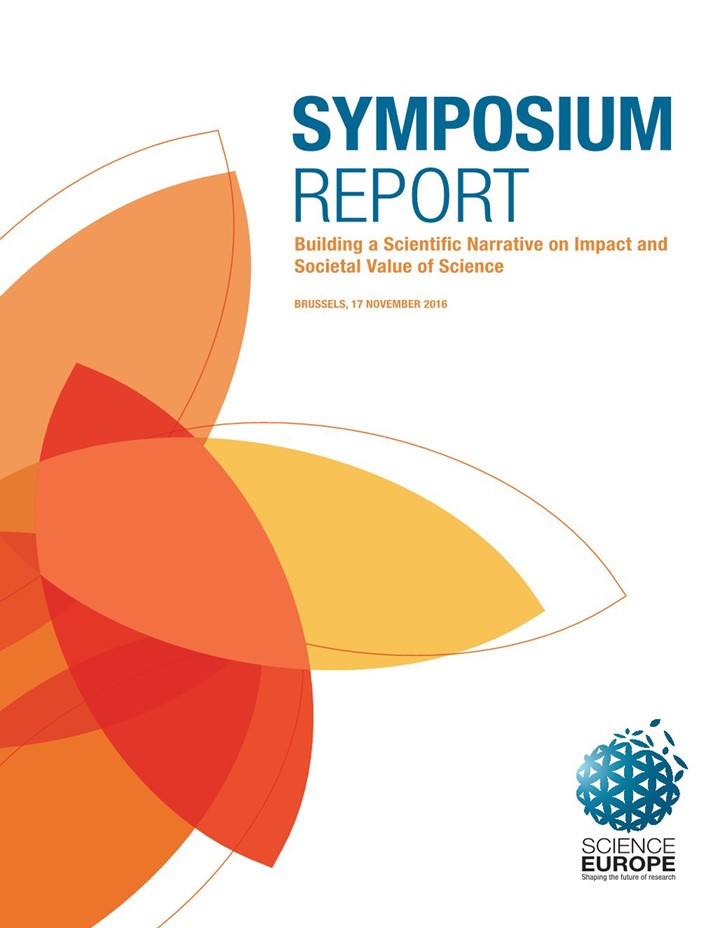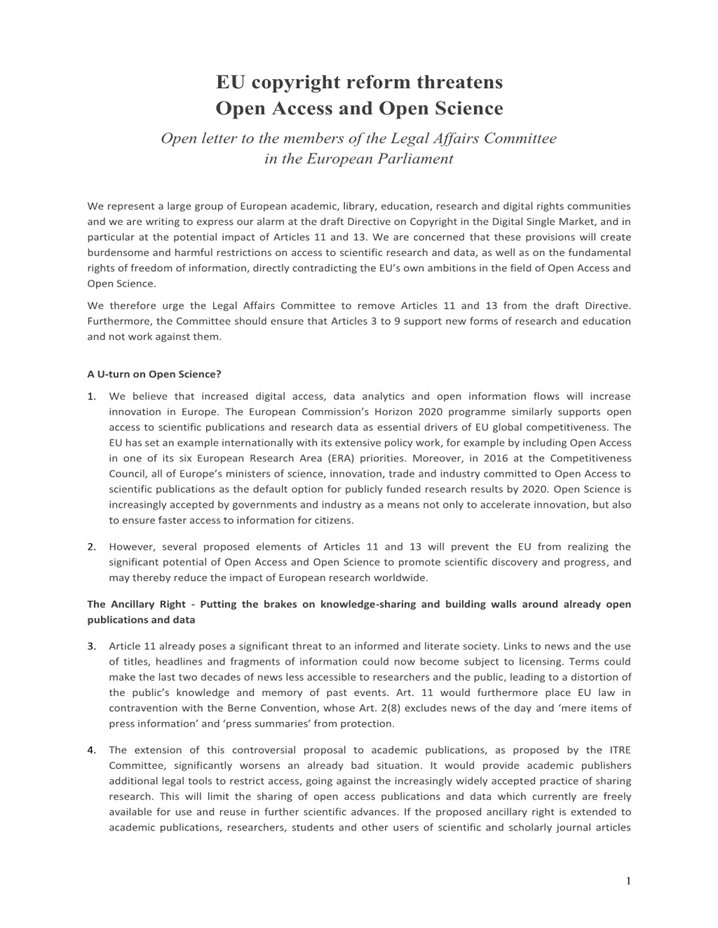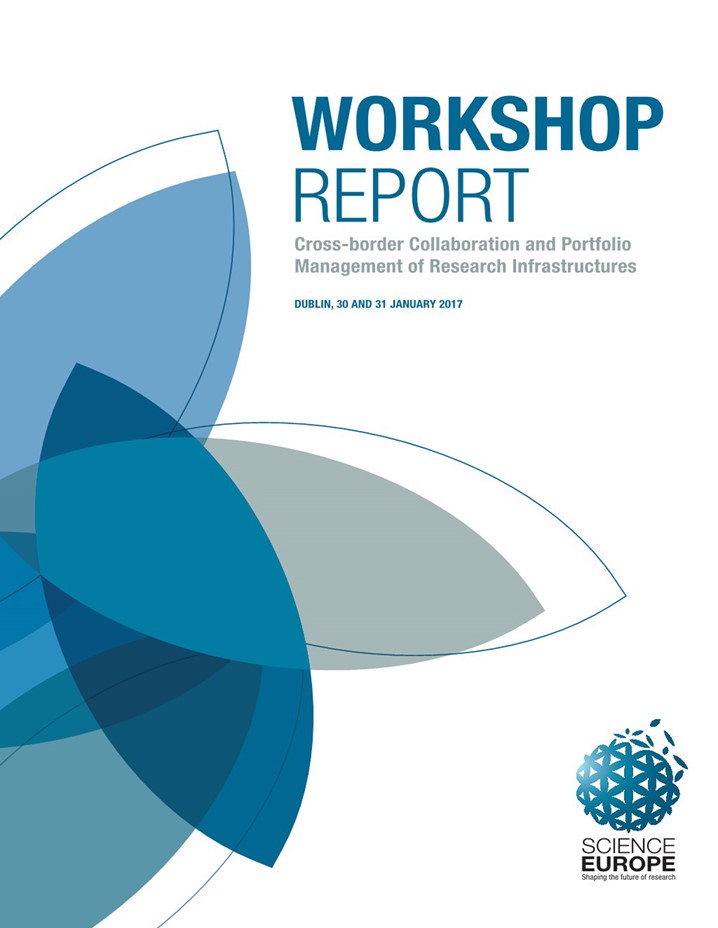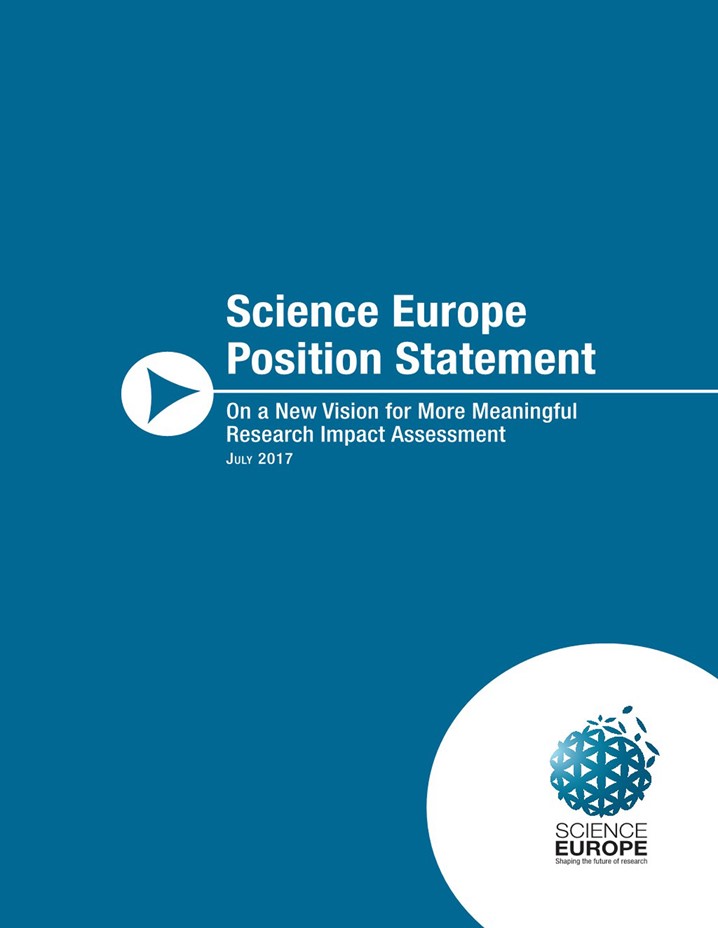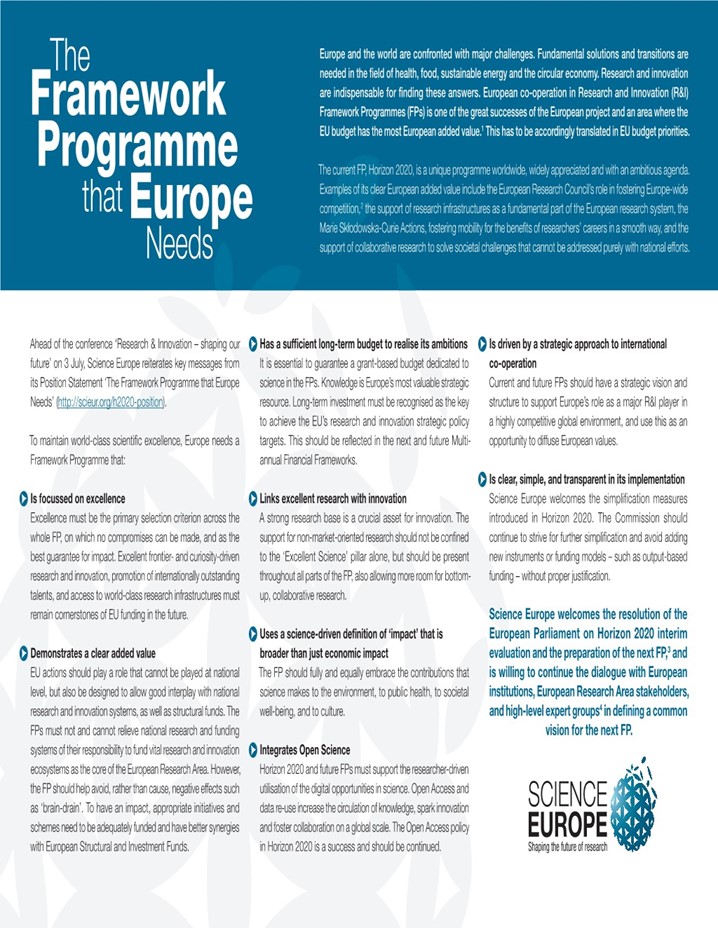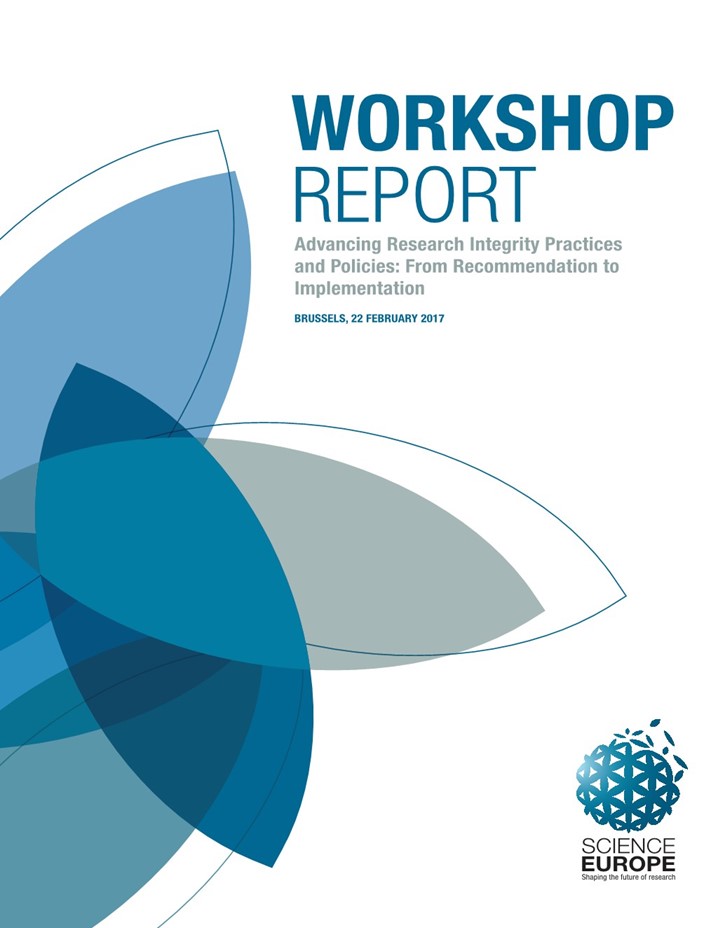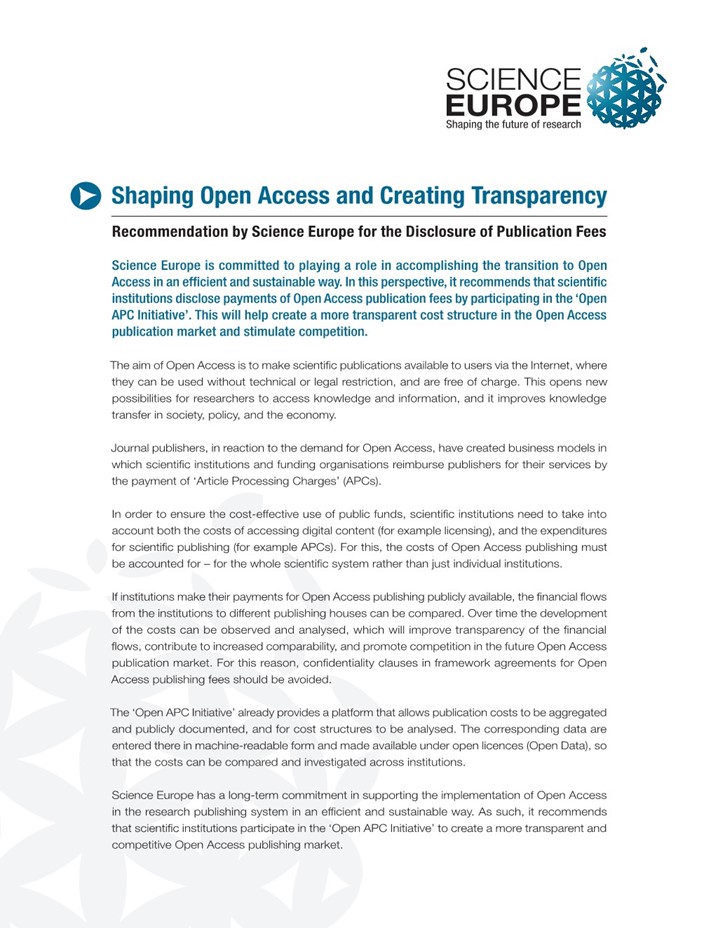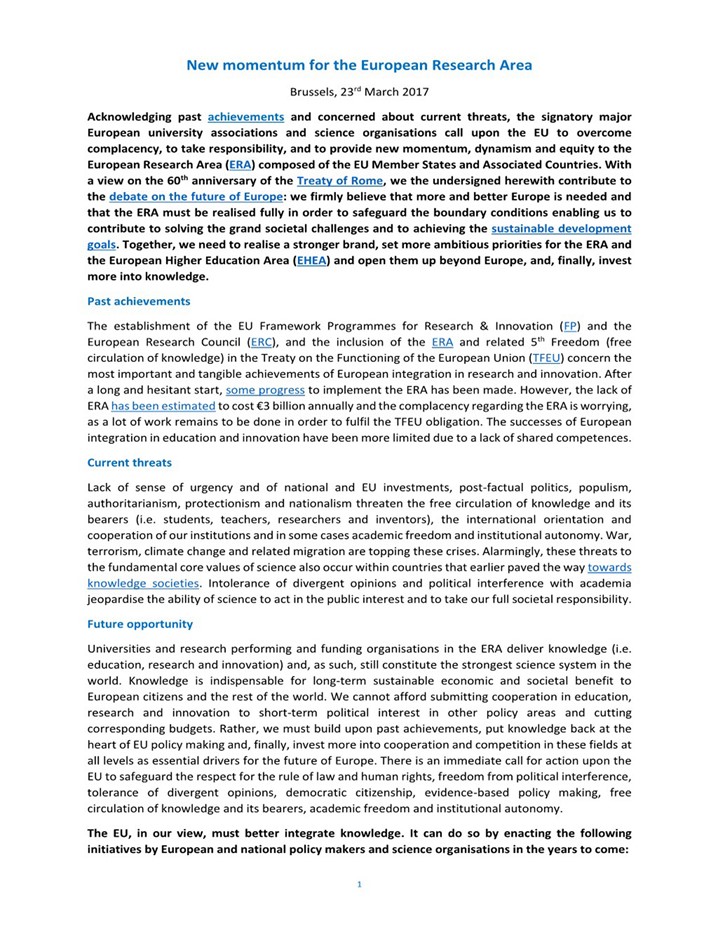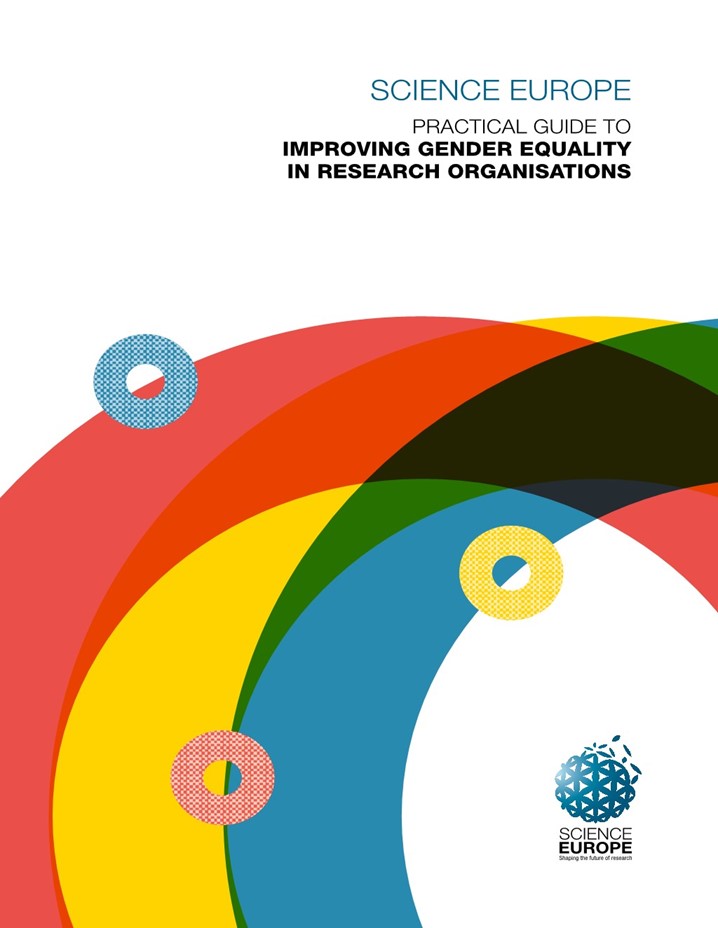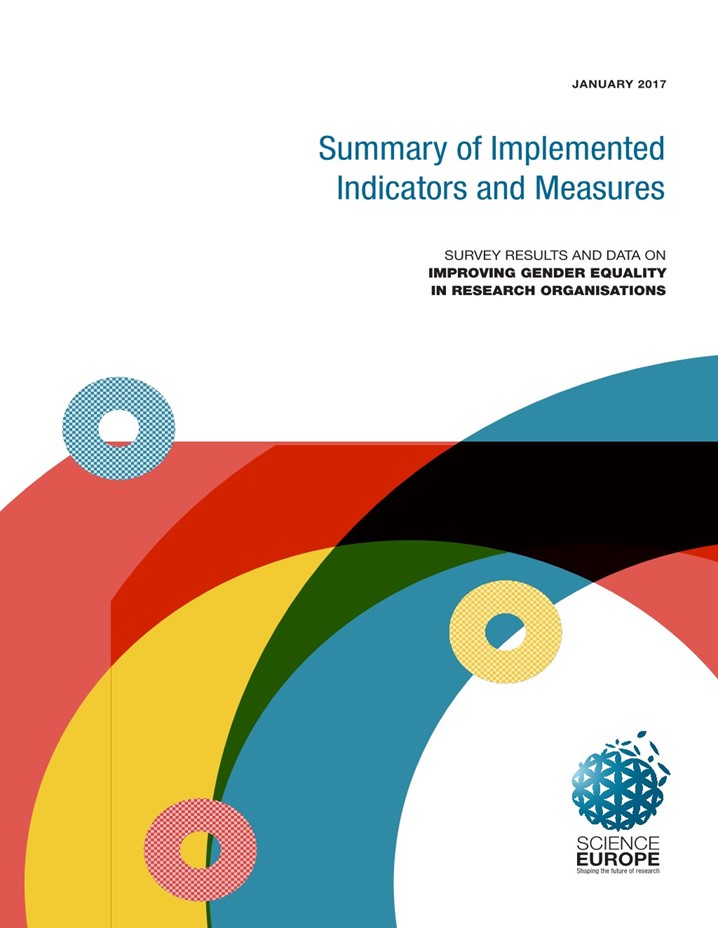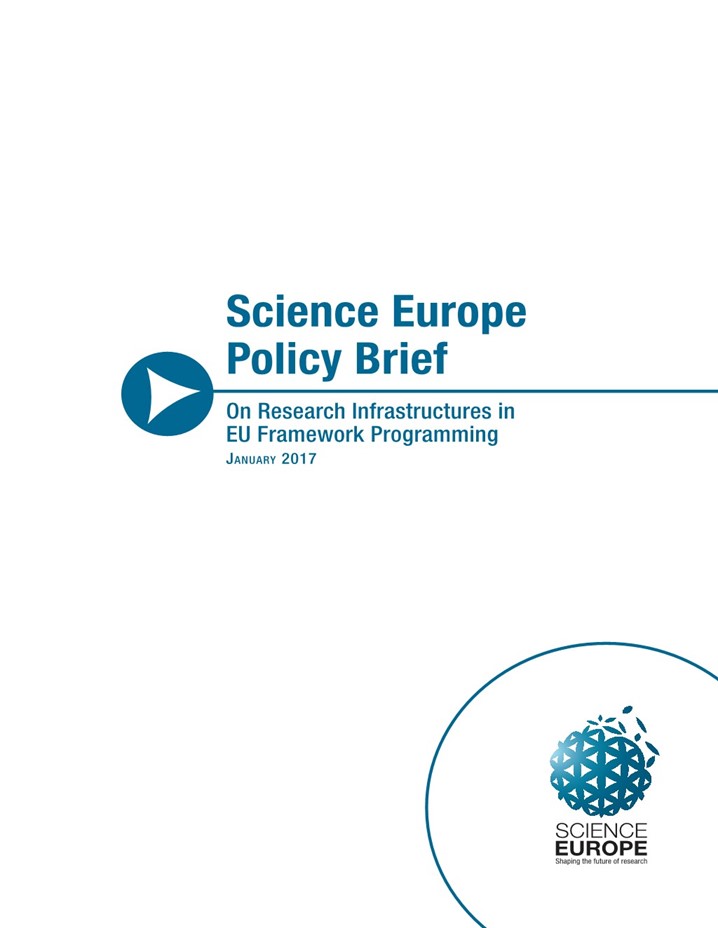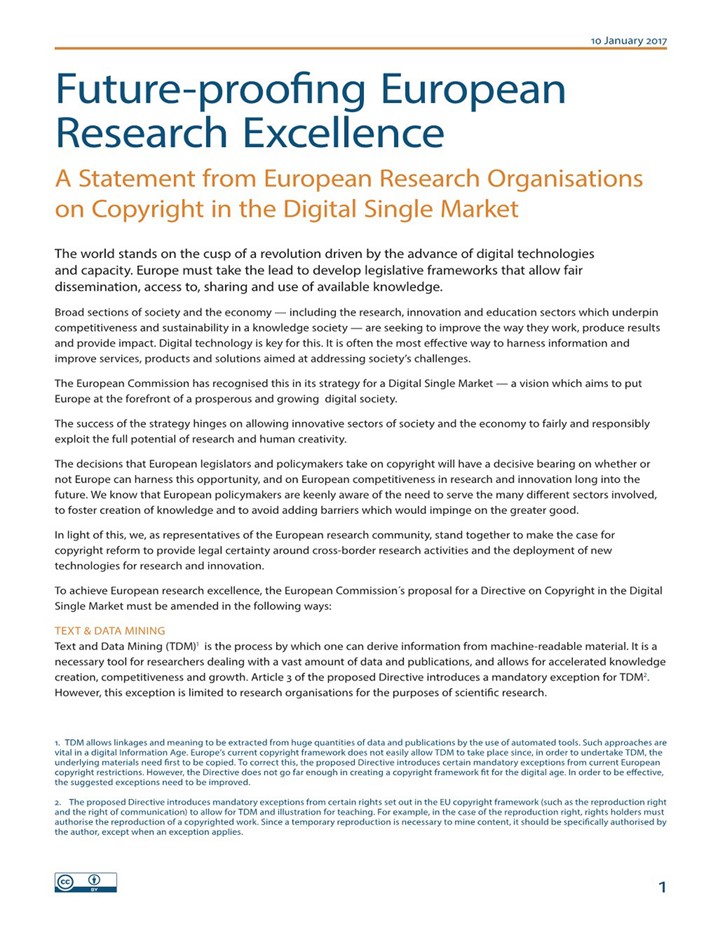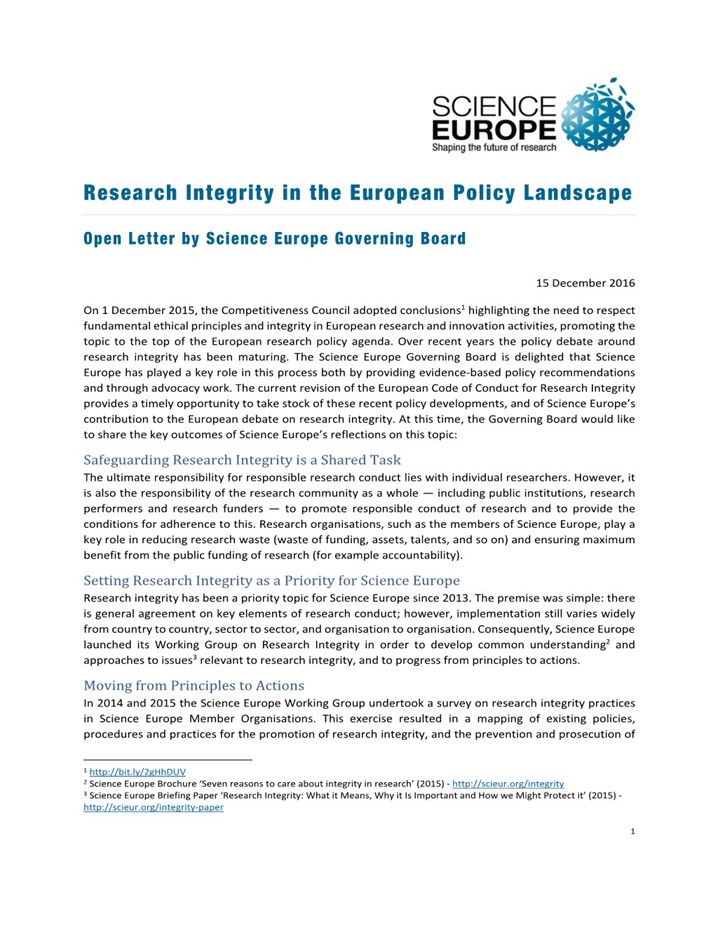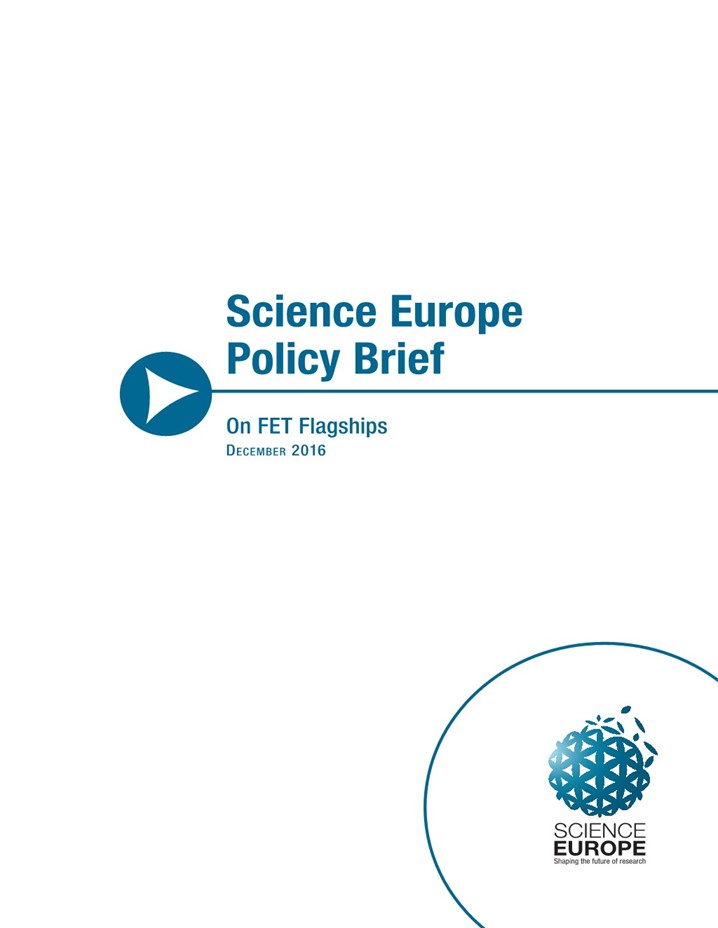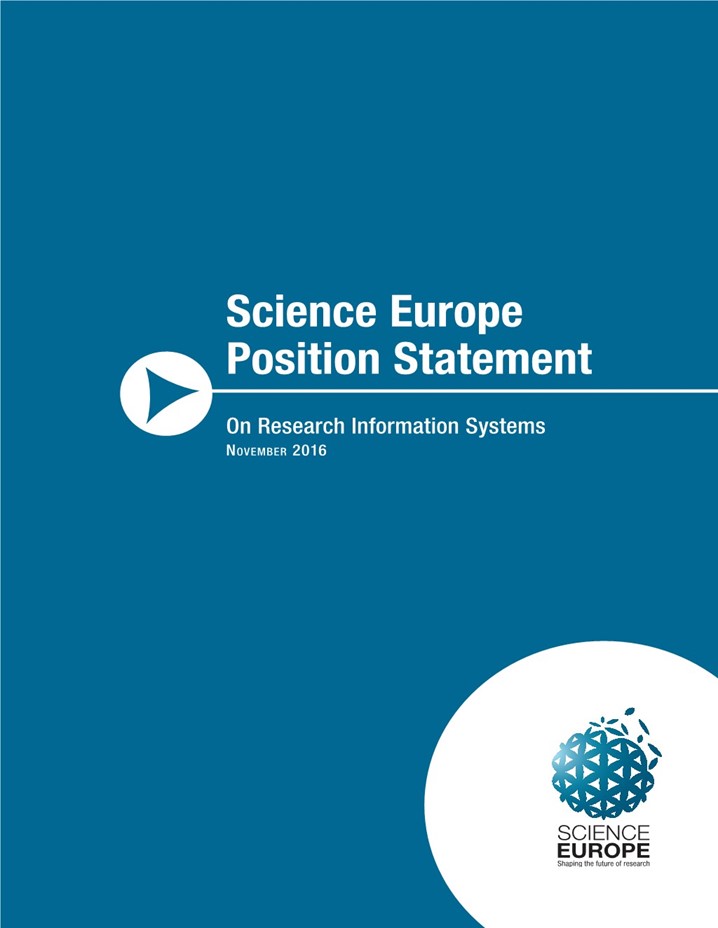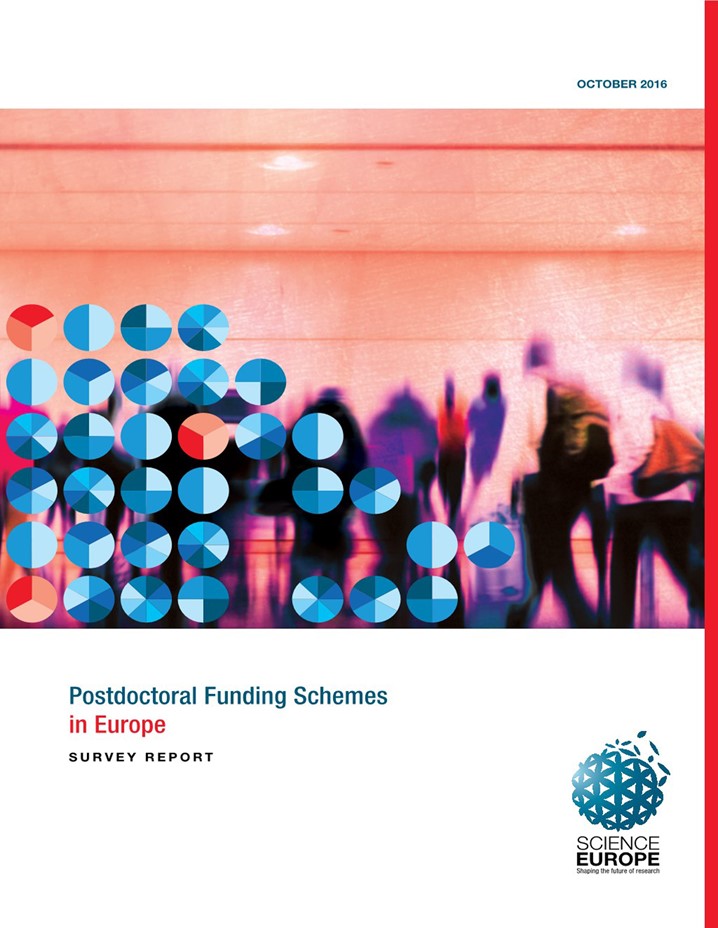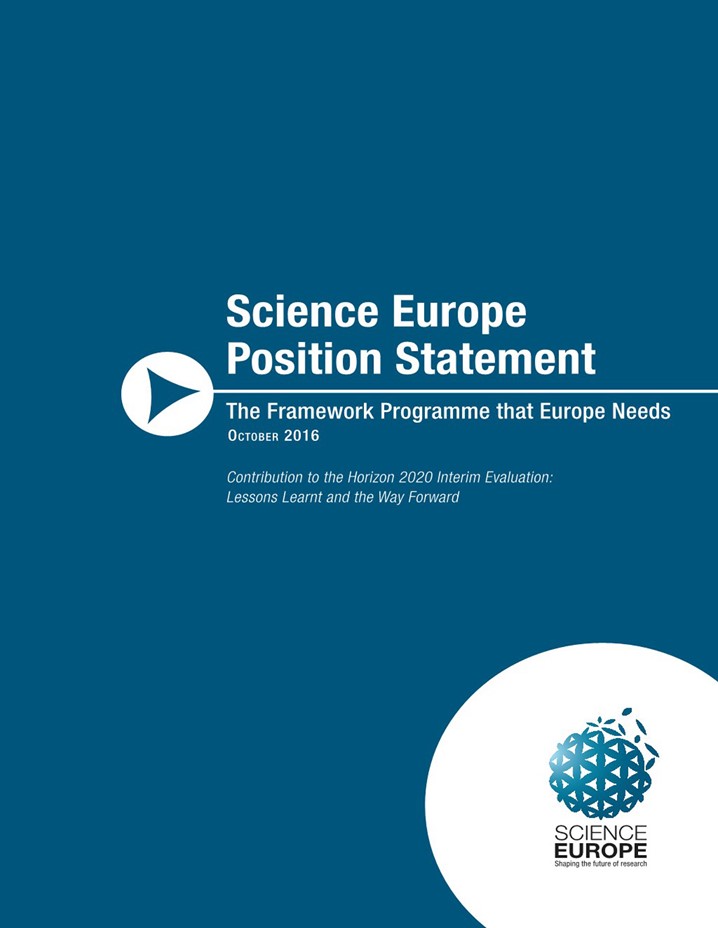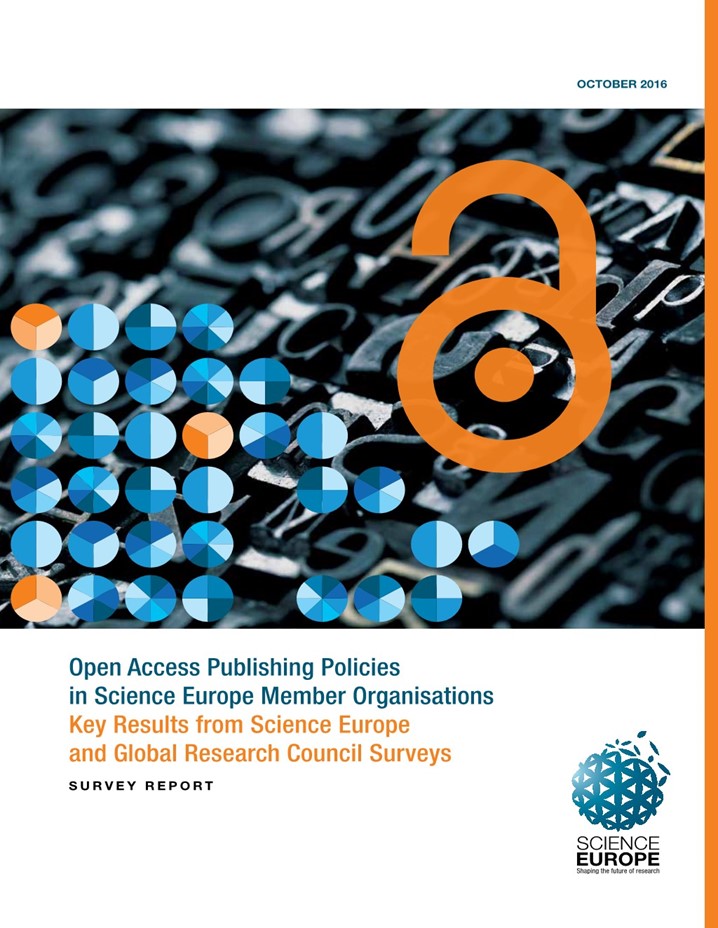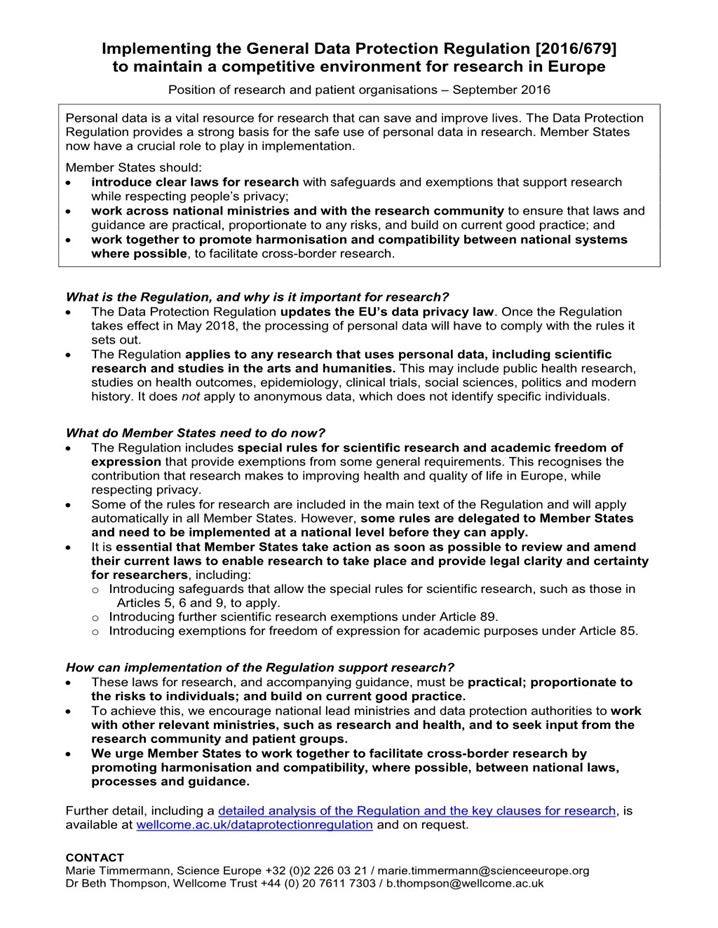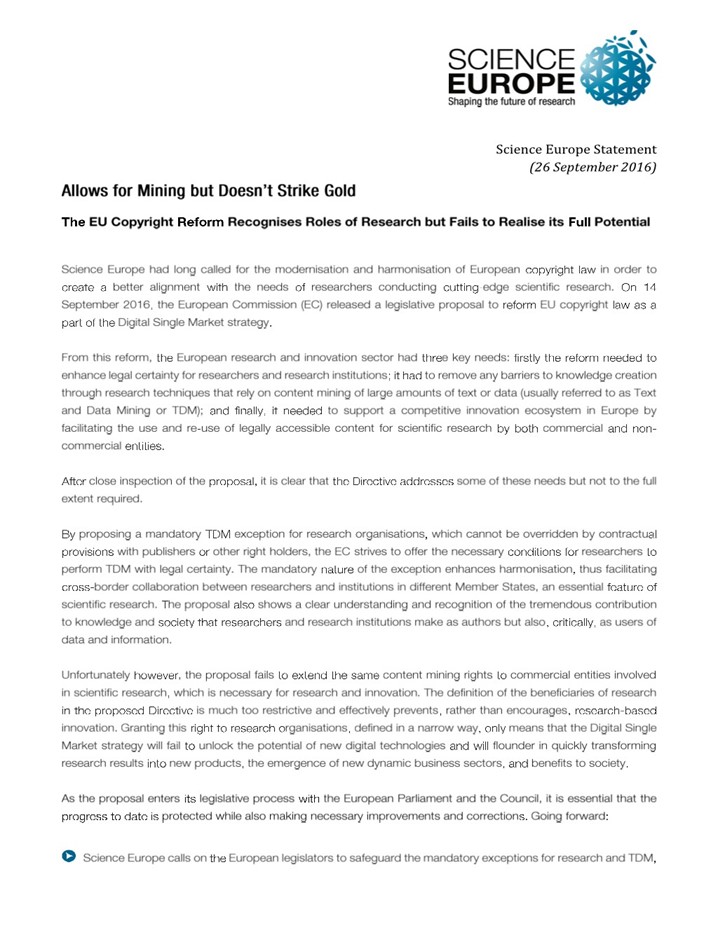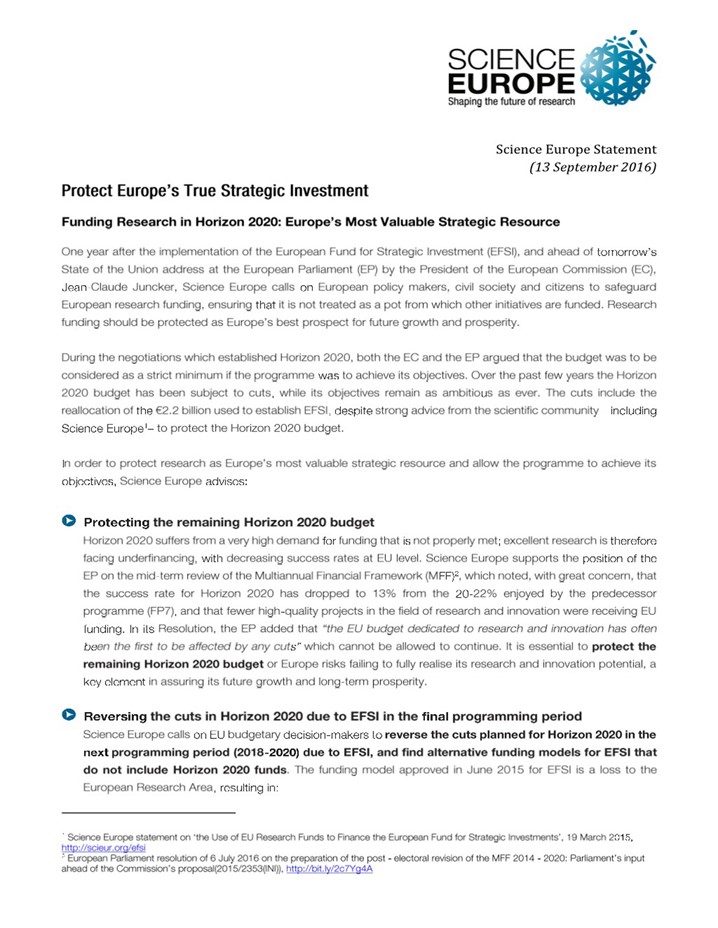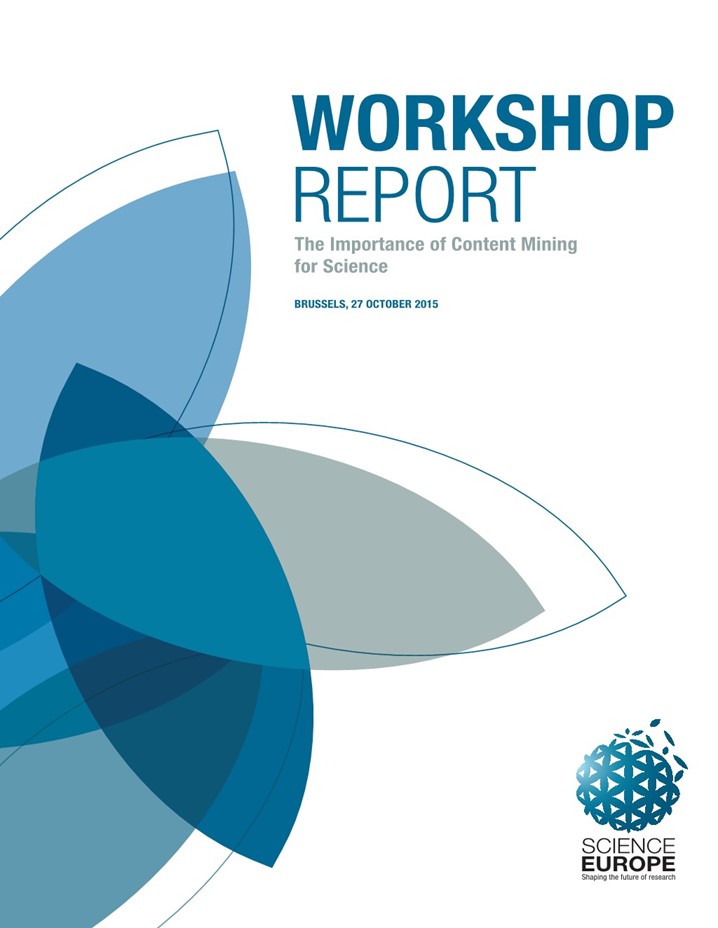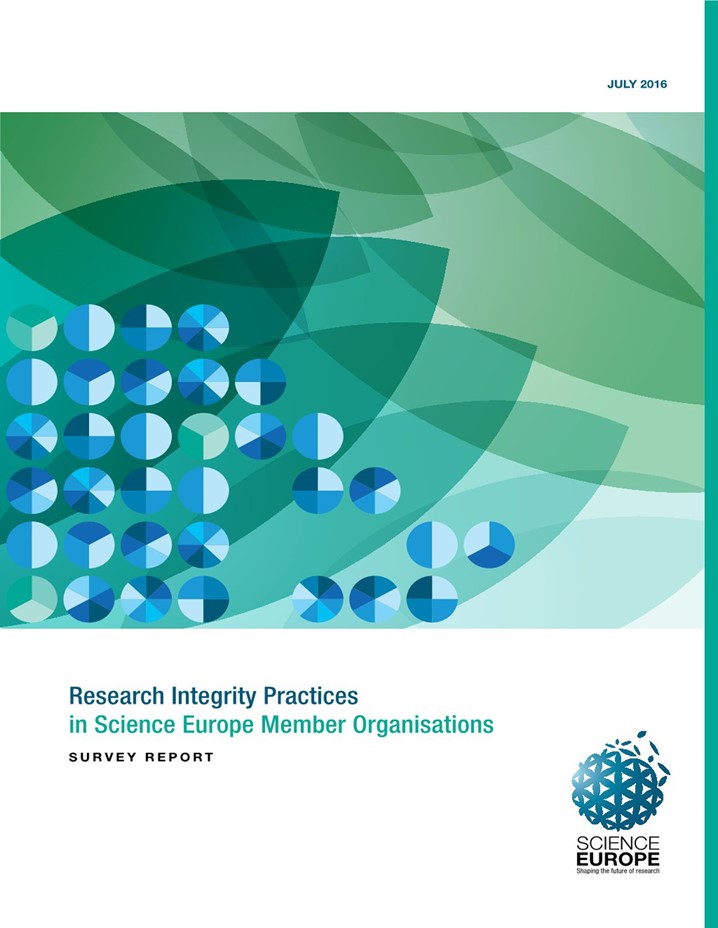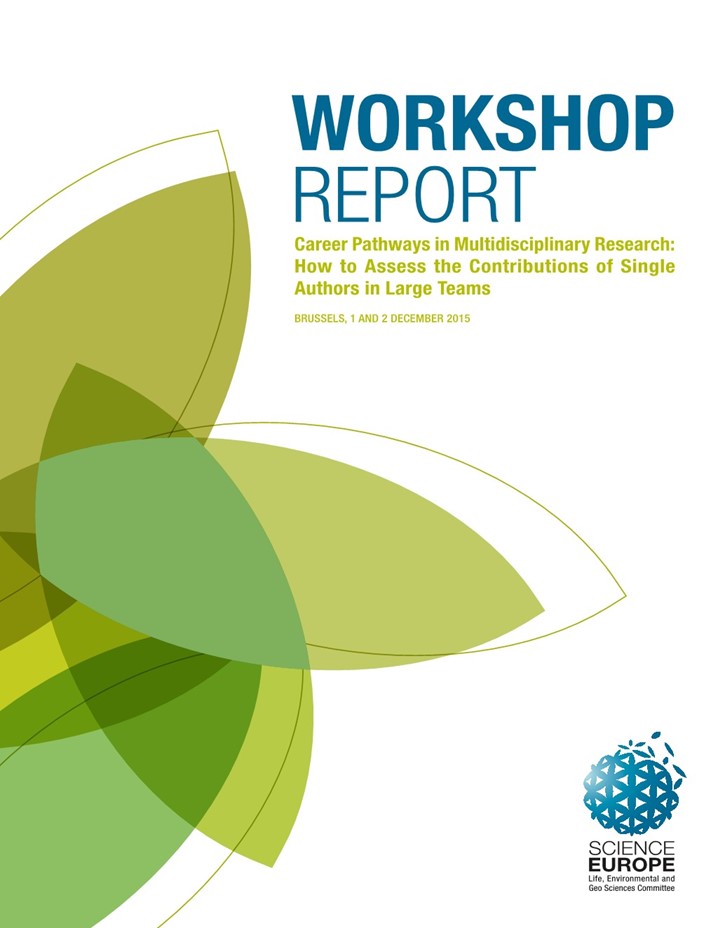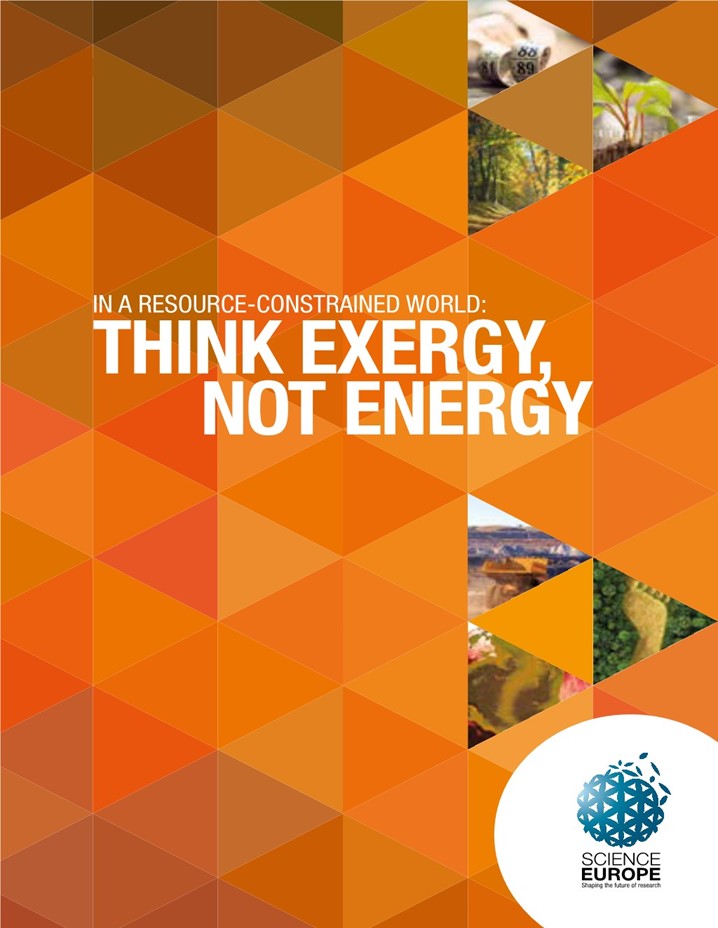Member-only content is available on this page. Please log in to view this content.

Our resources
Discover Science Europe’s comprehensive library of resources, including the most recent publications, briefings, and position statements.
162 resource(s) found
Building a Scientific Narrative on Impact and Societal Value of Science
Fundamental science and curiosity-driven research are key drivers of change for their intrinsic value and long-term unexpected impact. However, many other aspects are also important such as challenge oriented research and co-creation of knowledge. This report captures key discussions from Science Europe’s first Symposium on impact and includes four case studies illustrating the unexpected impact of research on subjects ranging from privacy to nano-encapsulation.
EU Copyright Reform Threatens Open Access and Open Science
This open letter issued by the international research community calls on Members of the European Parliament to halt the adoption of harmful provisions found in the current draft of the Directive on Copyright in the Digital Single Market, which could threaten Open Access and Open Science.
Cross-border Collaboration and Portfolio Management of Research Infrastructures
This report explores the challenges facing research funding and performing organisations to design and manage balanced Research Infrastructure (RI) portfolios and design effective cross-border collaborations when setting up and running joint RIs. Discussions with a broad range of stakeholders took place at a dedicated workshop co-hosted by Science Foundation Ireland and the Health Research Board.
Position Statement on a New Vision for More Meaningful Research Impact Assessment
Science Europe advocates using the notion of ‘value’ of research. This is wider than ‘impact’ and reflects the intrinsic value of scientific research and its capacity to generate new knowledge. This statement provides a series of key principles and actions for policy makers and research organisations to help bring forward a new vision of impact assessment.
Key Principles to Shape the Future Framework Programme
Science Europe shares eight key principles to shape the future Framework Programme. Examples of its European added value include the ERC’s role in fostering Europe-wide competition, the support of Research Infrastructures as a fundamental part of the European research system, and the support of collaborative research to solve societal challenges that cannot be addressed purely with national efforts.
Advancing Research Integrity Practices and Policies: From Recommendation to Implementation
This workshop aimed to advance implementation of the recommendations published in Science Europe’s Survey Report ‘Research Integrity Practices in Science Europe Member Organisations.’ The workshop explored the challenges in taking forward certain recommendations through the discussion of case studies presented by organisations that have already tackled some of the more difficult issues.
Science Europe Recommendation for the Disclosure of Publication Fees
Science Europe is committed to playing a role in accomplishing the transition to Open Access in an efficient and sustainable way and encourages scientific institutions to disclose payments of Open Access publication fees by participating in the ‘Open APC Initiative.’ This paper highlights how this will help create a more transparent cost structure in the Open Access publication market and stimulate competition.
Joint Statement on New Momentum for the European Research Area
CESAER, EUA, LERU, and Science Europe release this joint statement calling on European policy makers to provide new momentum for the European Research Area (ERA). The ERA is a treaty obligation of the European Union and today, more than ever, greater commitment to research is needed to tackle the challenges that Europe faces. By strengthening the ERA, and increasing funding for research, European policy makers would be giving Europe the resources it needs to embark on another 60 years of peace and prosperity.
Practical Guide to Improving Gender Equality in Research Organisations
Research organisations have a crucially important role to play in addressing gender inequality; not only for the benefit of their own ecosystem, but to contribute to progress in wider society. This practical guide sets out good practice examples and guides the further development of context specific approaches including how to avoid unconscious bias in peer review processes, how to monitor gender equality, and how to improve grant management practises.
Summary of Implemented Indicators and Measures: Survey Results and Data on Improving Gender Equality in Research Organisations
This document complements the ‘Practical Guide to Improving Gender Equality in Research Organisations.’ It provides the qualitative and quantitative background data on which parts of the guide are based and measures the implementation of gender equality measures within Science Europe Member Organisations.
Policy Brief on Research Infrastructures in EU Framework Programming
Research Infrastructures (RIs) are of utmost importance for Europe’s global competitiveness and this paper puts forward the case of how the focus on RIs in Horizon 2020 should be enhanced.
Joint Statement on Future-proofing European Research Excellence
LIBER Europe, CESAER, EUA, LERU, and Science Europe — who together represent hundreds of universities, libraries, and research funding and performing organisations — call on Members of the European Parliament to modify the current EU copyright reform proposal. Amendments in five main areas of the proposal are critical if Europe wants to be at the forefront of a prosperous and growing digital society. Europe must take the lead to develop legislative frameworks that allow fair dissemination, access to, sharing and use of available knowledge.
Open Letter from the Governing Board of Science Europe on Research Integrity in the European Policy Landscape
Safeguarding research integrity is a shared task. This is the core message of the Science Europe Governing Board in its Open Letter which is a contribution to the revision of the European Code of Conduct for Research Integrity. It provides the opportunity to take stock of the recent policy developments and of Science Europe’s contribution to the European debate on research integrity.
Policy Brief on FET Flagships
This briefing is a contribution to the evaluation and development of Future and Emerging Technologies (FET) Flagships under Horizon 2020. It highlights lessons learned about the added value and limitations of the current FET Flagships and provides recommendations for the development of the FET Flagship instrument.
Position Statement on Research Information Systems
Science Europe is working to enhance the interoperability of research information systems. This publication sets out common principles to guide their development.
Postdoctoral Funding Schemes in Europe
The postdoctoral period is a critical phase in a researcher´s career: it is when (s)he chooses whether to pursue a scientific career, and succeeds in achieving that goal, or not. Science Europe has carried out a mapping of support opportunities for postdoctoral researchers, or ‘postdocs’, to improve understanding of what funders do to support researchers’ careers after the completion of their PhD, and to learn whether existing funding schemes can be improved in terms of career support.
Position Statement on the Framework Programme that Europe Needs
Horizon 2020 is a unique programme worldwide; it is widely appreciated and has an ambitious agenda. It can meet expectations as long as its nature as a programme capable of supporting excellent research is reinforced. Ahead of the interim evaluation of Horizon 2020, Science Europe shares the extensive experience of its Member Organisations, many of whom have decades of experience in setting up world-leading research programmes or are among the main beneficiaries of the Framework Programmes.
Open Access Publishing Policies in Science Europe Member Organisations: Key Results from Science Europe and Global Research Council Surveys
Open Access greatly improves the pace, efficiency, and efficacy of research. This report highlights the efforts made by public research organisations in Europe to develop and implement Open Access policies and addresses the challenges faced by different actors in order to facilitate and accelerate the transition towards full Open Access for all scholarly publications by 2020.
Joint Statement on Implementing the General Data Protection Regulation to Maintain a Competitive Environment for Research in Europe: Position of Research and Patient Organisations
This joint statement on the implementation of the Data Protection Regulation (DPR), facilitated by Science Europe and Wellcome and released by the wider research community, highlights the crucial role Member States must now play in its implementation by reviewing and amending their current laws to enable research to take place.
Allows for Mining but Doesn't Strike Gold: Science Europe Copyright Statement
The recent legislative proposal from the European Commission to reform EU copyright law addresses some needs, but not to the full extent required. Science Europe calls for research and data mining exceptions to ensure that copyright legislation is friendly to research and innovation.
Funding Research in Horizon 2020: Europe’s Most Valuable Strategic Resource
Science Europe expresses strong concern that the research funding budget be maximised in Horizon 2020 so that Europe can fully realise its target of becoming a smart, sustainable and inclusive economy. Funding for research and innovation in Europe is a critical strategic investment which is essential for Europe’s long-term growth and prosperity.
The Importance of Content Mining for Science
Text and data mining (TDM) is hugely important for science as it can facilitate better research and the free flow of knowledge across borders. This report urges policy-makers to update the legal framework in the context of the upcoming EU copyright reform in order to allow TDM for commercial and non-commercial means, and also to clarify the legal position surrounding it.
Research Integrity Practices in Science Europe Member Organisations
Research integrity is at the core of the research endeavour. It is the basis for researchers’ trust in each other and in the research record and, equally importantly, society’s trust in research. This report maps existing policies, procedures, and practices for promoting research integrity and builds upon this to make a number of key recommendations for improving research integrity including processes and policies, awareness raising, training, and collaboration.
Career Pathways in Multidisciplinary Research: How to Assess the Contributions of Individual Members of Large Teams
Scientific research increasingly relies on large collaborative, multi-disciplinary, and interdisciplinary research teams – often working across borders and across sectors – to address big societal questions. This report considers how research organisations can best support collaborative, multi-disciplinary, and interdisciplinary research teams. It also considers how can they allocate appropriate credit for research input and better evaluate multidisciplinary research.
In a Resource-constrained World: Think Exergy, not Energy
When we think about energy, we consider it in terms of quantity. However, in a resource-constrained world, energy and in particular its efficiency, must also be appreciated from the point of view of quality, which is its ability to do work. In order to include the quality and not just the quantity of energy, we need to measure ‘exergy’. This brochure introduces the concept of exergy and provides examples of its application.

